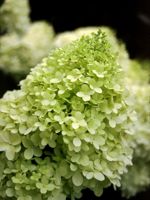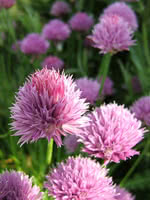Mon-Fri 9am - 5pm Mountain time
Chives vs Limelight Hydrangea
Hydrangea paniculata Limelight
Allium schoenoprasum
NOT AVAILABLE THIS SEASON - MIGHT RETURN
NOT AVAILABLE THIS SEASON - MIGHT RETURN
Limelight Hydrangea is a flowering shrub that is known for its green flowers. As they mature, the flower colour changes from a pale green to a creamy white, followed by shades of pink and red. Hydrangea flowers persist longer compared to other flowering shrubs, blooming from late July into fall. They are a popular choice for flower arrangements.
The Limelight Hydrangea can be grown as a stand alone shrub, as a hedge, or incorporated into a flower garden. Blooms occur on new wood, so regular pruning is encouraged in late winter. This is an award winner from the Proven Winners® collection.
Chives are small bulbous perennials commonly used as herbs in cooking for a mild onion like flavour. Chives also add ornamental benefits to your yard with their tubular grass-like leaves and clusters of pale purple flowers. The flower heads can also be used as a garnish or in oils.
It is best to harvest Chives from the base to maintain the attractive clumps. If the flowers are not dead-headed, it will self-seed. Planting our overwintered chives will give you a head start in your vegetable garden.
Limelight Hydrangea Quick Facts
Chives Quick Facts
Toxicity: toxic to dogs, cats, and horses

